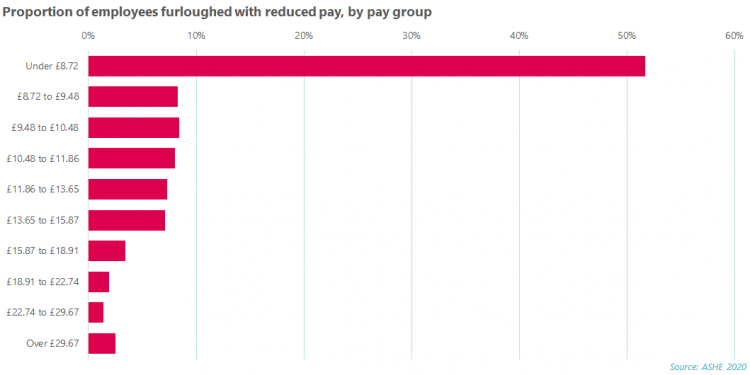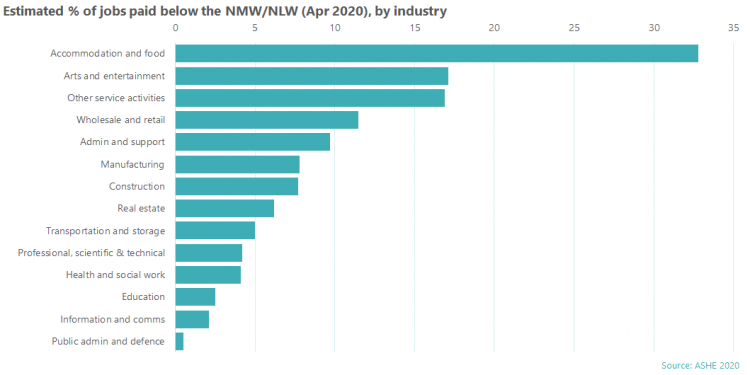The government must ensure no one is paid below the minimum wage due to the furlough scheme
Under the furlough scheme, employees are paid at least 80 per cent of their wages, with the option for employers to top this up to full pay if they want to.
While some employers are choosing to do this, too many aren’t.
And this 20 per cent drop in pay is pushing already low paid workers below the minimum wage.
The government must urgently act to introduce a requirement that no one’s pay drops below the legal minimum. This must be applied to both the existing scheme, and its upcoming replacement, the job support scheme.
Low-earners and young workers hardest hit
The latest data from the Annual Survey of Hours and Earnings (ASHE), shows that low-paid, part-time and young workers are significantly more likely to be on furlough with reduced pay. In April, more than half of employees in the lowest decile of hourly earnings (earning less than £8.72 per hour) were furloughed and receiving reduced pay.
This means low earners were five-times more likely to be furloughed on reduced pay.

This is likely linked to the industries they work in.
The proportion of employees furloughed without being paid the top-up was highest in industries such as hospitality (39 per cent), the arts (27 per cent), and construction (26 per cent).
Pushing workers below the minimum wage
Living off 80 per cent of your wages would be a struggle for most people. It’s even more of a struggle if the drop in pay pushes you below the already insufficient legal minimum wage.
The furlough scheme does not require employees to be paid at least the minimum wage. The impact of not building in this protection is clear in the ASHE data.
In April, when the data is collected, 7.2 per cent of employees were paid below the National Minimum Wage (NMW) or National Living Wage (NLW).
This equates to just over two million people not being paid the legal minimum.
Young workers, part-time workers and workers in the hospitality sector were the most likely to be affected. Shockingly, a third of accommodation and food workers were not earning the NMW/NLW.

These new findings on furlough pay reflect something we’ve known for months: the pandemic is hitting low-paid workers hardest.
Low-paid workers are less likely to be able to work from home, less likely to have access to good sick pay, more likely to be furloughed and more likely to die due to the virus.
Fixing the flaw
The government had the opportunity to fix the flaw in the furlough scheme’s replacement, the job support scheme, but chose not to do so.
In light of this new earnings data, they must urgently remedy this mistake.
The government must ensure the pay of no furloughed worker drops below the legal minimum, under both the existing furlough scheme and the new job support scheme.
It’s also vital that the government does not worsen the livelihoods of low-paid workers by delaying or cancelling planned increases to the National Living Wage.
Instead, we want to see the National Minimum Wage set to £10 per hour for all. This would be a pay rise for millions of workers, including 3.6 million key workers.
And we need to see a more generous package of support for those who are already struggling. This should include a freeze on council tax debt repayment, significant increases to the hardship fund delivered by local authorities, and support for renters, including reintroducing the eviction ban.
The government should also explore writing off council tax debt and providing the outstanding money to councils.
These measures would help protect those most vulnerable to the worst effects of the pandemic.
Stay Updated
Want to hear about our latest news and blogs?
Sign up now to get it straight to your inbox
